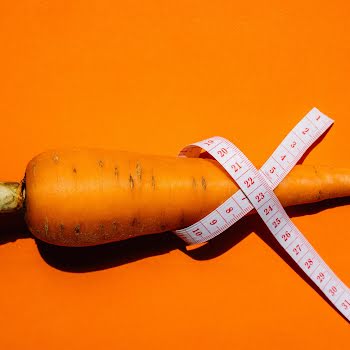
By Jennifer McShane
12th Sep 2020
12th Sep 2020
Coming into winter, there’s always a risk we can get the flu, but as we are in the midst of Covid-19 and brace ourselves for the colder temperatures over the coming weeks and months, we really do need to be extra mindful of our health– this includes getting the flu vaccine. Here’s all you need to know about it, plus a few other simple tips to keep yourself feeling well
Make your appointment for the flu vaccine
According to the Health Protection Surveillance Centre, ‘influenza season’ starts in October and continues right through to May, though cases of people being hospitalised in Ireland tend to peak as we hit November through to January/February.
One of the first things recommended is to get the flu vaccine, available from the end of September for at-risk groups and in October for children.
Each year the seasonal flu vaccine protects against four common influenza virus strains. The flu virus changes each year and therefore a new flu vaccine must be given each year. The seasonal flu vaccine helps a person’s immune system to produce antibodies to the flu virus. It helps your immune system to produce antibodies to fight influenza virus. If you have been vaccinated and you come into contact with the virus, these antibodies will attack it and stop you from getting sick. The flu vaccine starts to work within two weeks.
Related: ‘A civic duty’: Orla Tinsley calls on everyone to get the flu vaccine
Who should get the flu vaccination?
While everyone should consider getting the vaccinations this year with COVID-19, it’s especially important for specific at-risk groups, including those over 65, people with impaired immune systems, those with a BMI over 40, pregnant women, healthcare workers and carers, cancer patients and those with disabilities. The HSE strongly urges the following at-risk groups get vaccinated, especially if you are:
- are 65 years of age and over
- are pregnant
- have a long-term medical condition – for example, a heart, lung, kidney or neurological disease or cancer
- have a weak immune system – for example, if you have diabetes or you’re having chemotherapy
- live in a nursing home or other long-term care facility
- are obese and have a body mass index (BMI) of over 40
- are a child with a moderate to severe neurodevelopmental disorder such as cerebral palsy
- were born with Down syndrome
The Minister for Health, Stephen Donnelly, has confirmed that an expanded flu vaccination programme will roll out this autumn.
Flu season lasts in Ireland from October to April and each season, an average of 200-500 people die from the illness and thousands are hospitalised.
The aim of expanding the flu vaccine programme this year, according to government, is to reduce the spread of flu and flu-related hospital admissions at a time when the health service is already under major strain as a result of COVID-19.
“The health service is entering a challenging winter period in the midst of a global pandemic. It’s important that we make every effort collectively to limit the impact on the health service over the coming months.
“Limiting that impact and protecting the most vulnerable people in our society means that everyone who can get the flu vaccine should get it, and we are starting by making it accessible without charge to all in the at-risk groups,” he said.
Where can I get it?
All people in at-risk groups, which includes those over the age of 65, pregnant women and healthcare workers, will be able to access the vaccination without charge.
For the first time, children aged between two and 12 will also be able to access it without charge. The vaccine will be administered to children via nasal drops rather than an injection.
For all other customers over 18 years outside of the categories above, winter flu vaccination costs around €20.
Try natural remedies

Obviously, eating well and staying in good physical shape will strengthen your immune system, but equally, there are other options you can add to your day-to-day that will also help.
Probiotics
Probiotics help your body in many different ways. They remove harmful toxins from the body, help your body metabolise fat and sugar, and nurture a healthy gut. To get the most out of these you will need to invest in one of the more expensive probiotics from the fridge section in your nearest health store – they pack more effective live bacteria.
Lemon-infused water
Whether it’s hot or cold, make sure to add this to your daily routine. Lemon water is a great source of vitamin C and B, Calcium, Magnesium, and Potassium that will definitely help to kick-start your day. Drinking lemon-infused water is also great for digestion and balancing pH levels in your body, which helps maintain a healthy system.
Echinacea
Echinacea is also a great way to beat the flu. The North American medicinal plant boosts the immune system, reduces the common cold symptoms, fights infection, and alleviates inflammation and pain, so if you’re suffering from a headache or a sore throat , seek it out in liquid rather than pill form, which you can add as a tincture to water repeatedly throughout the day.
Manuka Honey
Manuka honey contains impressive antibacterial properties, which are very effective for treating some flu symptoms. It contains more vitamins, minerals, amino acids and antioxidants than any other type of honey. Mix it with a nice hot cup of hot water and lemon and it will help soothe a sore throat and even help with relieving the effects of a dry, irritating cough.
Apple Cider Vinegar

Apple cider vinegar is a great remedy to help relieve and prevent cold symptoms. It can help boost your gut, fight infection by balancing the pH levels in your body and leave you feeling energised. Not only does it help soothe sore throats, but it also helps with a stuffy nose thanks to its antibiotic properties. It only takes one to two tablespoons of apple cider vinegar to take advantage of these amazing health benefits. Slug a nice organic, Irish one (Llewelyn’s or Living Culture) first thing in the morning.
If you have any common symptoms of coronavirus (COVID-19), you should self-isolate and phone your GP straight away to get a coronavirus test. For more information on the flu vaccine, visit HSE.ie
Main photograph: Unsplash
Read more: You’re not imagining it, migraines really are worse during lockdown
Read more: Planning an autumn staycation? 12 ways to manage a migraine while travelling
Read more: Tired all the time? You may be suffering from social jet lag























